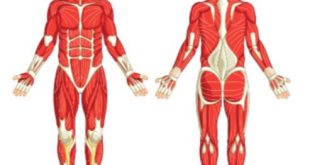Question
I have been confused about this issue for some time. I asked some people, but I am still not convinced. I understand that Allah has granted us and the jinn free will, and I actually feel that. But there are many hadiths in Bukhari which say that in reality, Allah has decreed whether a person will be pious or an evildoer, rich or poor, and so on. So everything is basically already decreed. Anas ibn Malik narrated that the Prophet (blessings and peace of Allah be upon him) said: “Allah appoints an angel in the womb, who says, ‘O Lord, a nutfah (sperm-drop)? O Lord, an ‘alaqah (a clinging clot)? O Lord, a mudghah (lump of flesh)?’ When Allah decrees that it is to be created, (the angel) says, ‘O Lord, male or female? Doomed or blessed? What is his provision? What is his lifespan?’ And that is written in his mother’s womb.” Sahih al-Bukhari, hadith no. 6595. And in Surat an-Nahl, verse 93, Allah, may He be exalted, says (interpretation of the meaning): {And if Allah had willed, He could have made you [of] one religion, but He causes to stray whom He wills and guides whom He wills. And you will surely be questioned about what you used to do}. The verses and hadiths mentioned above, and others, indicate that our deeds, both righteous and bad, are already decreed. I also know that we are constantly being tested, as Allah says in the opening verses of Surat al-‘Ankabut and elsewhere, whilst also having the freedom to choose to do righteous or evil deeds. But many verses and hadiths state that the Shaytan is responsible for misguiding us through his schemes and power, because he knows us inside out, but we do not know him at all.
Answer
Praise be to Allah.
Firstly:
The accountable individual has the ability and freedom to choose, whether he is a human or a jinni. Through this ability and free will he may believe or disbelieve, obey or disobey, as Allah, may He be exalted, says (interpretation of the meaning):
{And say, “The truth is from your Lord, so whoever wills – let him believe; and whoever wills – let him disbelieve.” Indeed, We have prepared for the wrongdoers a fire whose walls will surround them}[al-Kahf 18:29].
And He says:
{Indeed, We created man from a sperm-drop mixture that We may try him; and We made him hearing and seeing.
Indeed, We guided him to the way, be he grateful or be he ungrateful}[al-Insan 76:2-3].
Because the accountable individual is capable and has the freedom to choose, he will be requited for his deeds; if they are good then the outcome will be good, and if they are bad then the outcome will be bad, and your Lord is not ever unjust to His slaves.
{So whoever does an atom’s weight of good will see it,
And whoever does an atom’s weight of evil will see it}[az-Zalzalah 99:7-8].
If man had no free will and was forced to do what he does, then punishing him for these actions would be unjust, but Allah is far above being unjust.
Every person is aware that he has free will, so no one forces him to pray or go to the mosque, just as no one forces him to do haram deeds or go to places where such things are done.
Secondly:
Because Allah, may He be exalted, is the Creator, it is no wonder that He knows His slave, what he is going to do and what his ultimate fate will be, whether he is blessed [destined for paradise] or doomed [destined for hell]. Allah, may He be glorified, knew that and wrote it with Him in al-Lawh al-Mahfuz, and He commands the angel to write that down when the foetus is still in his mother’s womb.
But this prior knowledge is hidden from man, and he is not aware of it. Allah does not force him to do anything or to refrain from anything. All the individual has to do is strive, and he will be requited for his efforts, like a student who is given a book to study and be tested on. If he works hard and strives he will succeed, but if he is heedless he will fail, even though his teacher already knows the expected outcome because he knows the student and is aware of his situation.
This is only an example, to make the matter easy to understand, and to Allah belong the most sublime attributes. Allah is the Creator of man and He knows the stealth of the eyes and all that the hearts conceal, and He has perfect knowledge of His slave, whom He created, and is aware of his situation. {How could He Who created not know His own creation, when He is the Knower of subtleties, the All-Aware?} [al-Mulk 67:14].
As Allah, may He be glorified, says (interpretation of the meaning):
{and Allah sends astray [thereby] whom He wills and guides whom He wills. And He is the Exalted in Might, the Wise} [Ibrahim 14:4]
{And if Allah had willed, He could have made you [of] one religion, but He causes to stray whom He wills and guides whom He wills. And you will surely be questioned about what you used to do} [an-Nahl 16:93]
{Whoever Allah guides – he is the [rightly] guided; and whoever He sends astray – it is those who are the losers} [al-A‘raf 7:178].
Allah’s guidance is of two types, general and specific. As for the general type, that refers to guidance in the sense of showing the way and making the truth clear, as Allah, may He be exalted, says (interpretation of the meaning):
{And as for Thamud, We guided them, but they preferred blindness over guidance, so the thunderbolt of humiliating punishment seized them for what they used to earn} [Fussilat 41:17]
– that is, We showed them the path of truth.
And Allah, may He be glorified and exalted, says (interpretation of the meaning):
{Indeed, We guided him to the way, be he grateful or be he ungrateful} [al-Insan 76:2-3].
As for that which is specific, this guidance is for His believing slaves, meaning that He helps them to find and adhere to the path of guidance. For example, Allah, may He be exalted, says (interpretation of the meaning):
{Those are the ones whom Allah has guided, so from their guidance take an example. Say, “I ask of you for this message no payment. It is not but a reminder for the worlds”} [al-An‘am 6:90]
{And thus We have revealed to you an inspiration of Our command. You did not know what is the Book or [what is] faith, but We have made it a light by which We guide whom We will of Our servants. And indeed, [O Muhammad], you guide to a straight path} [ash-Shura 42:52]
{And those who strive for Us – We will surely guide them to Our ways. And indeed, Allah is with the doers of good} [al-‘Ankabut 29:69]
{But Allah has endeared to you the faith and has made it pleasing in your hearts and has made hateful to you disbelief, defiance and disobedience. Those are the [rightly] guided.
[It is] as bounty from Allah and favor. And Allah is Knowing and Wise} [al-Hujurat 49:7-8].
As for misguidance, this refers to when Allah leaves a person to his own devices, and does not grant him the means of help and support.
At-Tahawi (may Allah have mercy on him) said in his famous book al-‘Aqidah: Allah guides whomever He wills, protecting him from sin and granting him well-being by His grace, and He leaves astray whomever He wills, forsaking him and putting him through trials by His justice. All of them are subject to His grace or justice, as He wills.
Guidance, according to Ahl as-Sunnah wa’l-Jama‘ah, is when Allah grants a person His help and guidance, and makes things easy for him. Forsaking is when He leaves a person to his own devices, without any help or support.
It cannot be said: Why did He help this one and not that one?
Allah’s help is based on His grace and His forsaking is based on His justice, and He, may He be glorified, {He cannot be questioned about what He does, but they will be questioned} [al-Anbiya’ 21:23].
That is not merely because He has might and control, but because He has perfect knowledge, power, mercy and wisdom. For He, may He be glorified and exalted, is the most just of those who judge and the most merciful of those who show mercy; He is more merciful towards His slaves than a mother towards her child, and He has perfected everything which He has created.”(Fatawa Shaykh al-Islam 79).
Allah, may He be glorified, knows best who is deserving of grace and who is not, as He says (interpretation of the meaning):
{but Allah guides whom He wills. And He is most knowing of the [rightly] guided} [al-Qasas 28:56]
{And thus We have tried some of them through others that the disbelievers might say, “Is it these whom Allah has favored among us?” Is not Allah most knowing of those who are grateful} [al-An‘am 6:53].
Shaykh Ibn ‘Uthaymin (may Allah have mercy on him) said, explaining this important issue:
If it is said: If it is up to the will of Allah, may He be blessed and exalted, and all control is in His hand, then what power does man have, and what could he do if Allah has decreed that he is to be misguided and not guided?
We say: The answer to that is that Allah, may He be blessed and exalted, only guides those who deserve to be guided, and He leaves astray those who deserve to be left astray. Allah, may He be blessed and exalted, says (interpretation of the meaning):
{And when they deviated, Allah caused their hearts to deviate} [as-Saff 61:5]
{So for their breaking of the covenant We cursed them and made their hearts hard. They distort words from their [proper] usages and have forgotten a portion of that of which they were reminded} [al-Ma’idah 5:13].
Thus Allah, may He be blessed and exalted, has explained that the reason why He causes to go astray the who goes astray is only because of the person himself, and the person does not know what Allah, may He be exalted, has decreed for him, because he is unaware of the decree until after what was decreed has happened. Therefore he does not know what Allah has decreed for him, and whether he will be misguided or guided.
Why would he choose the path of misguidance, then argue that Allah, may He be exalted, wanted him to do that!
Is it not more appropriate for him to choose the path of guidance, then say: Allah, may He be exalted, has guided me to the straight path.”(Risalah fi’l-Qada’ wa’l-Qadar, p.14).
Thus we may conclude that:
- The accountable person is free to choose whether to obey or disobey of his own free will, and he will be requited for that.
- Allah knows what His slave’s fate will be, and He has written that with Him.
- Allah supports and helps His believing slave, and He knows best who is deserving of support and help.
- Allah forsakes whomever He will, and does not grant him support or help him. His support is based on His grace and His forsaking is based on His justice.
- The one who is helped is the one who asks Allah for support and help, because he cannot do without the grace of Allah for even the blink of an eye. Hence Allah, may He be exalted, says in Surat al-Fatihah: {It is You we worship and You we ask for help} [al-Fatihah 1:5]. So the religion is based on these two matters: worship and seeking help.
- The believing slave affirms the grace of Allah, may He be exalted, acknowledges the blessings that He has bestowed upon him, and attributes all goodness and success to Him, as Allah tells us that the people of Paradise will say (interpretation of the meaning): { And We will have removed whatever is within their breasts of resentment, [while] flowing beneath them are rivers. And they will say, “Praise to Allah, who has guided us to this; and we would never have been guided if Allah had not guided us. Certainly the messengers of our Lord had come with the truth.” And they will be called, “This is Paradise, which you have been made to inherit for what you used to do”} [al-A‘raf 7:43].
Reflect on how this verse mentions together the grace and guidance of Allah, and the fact that paradise is earned through striving.
Ignore these intrusive thoughts and focus on that which will benefit you, for this realm is the realm of striving and planting, and the hereafter is the realm of reward and harvesting. The people of Paradise will feel sad for wasting even a moment in which they did not remember Allah, so strive to attain virtues, do obligatory duties and compete for the highest levels in paradise. Ask Allah to accept your efforts, and to guide and help you.
As for the Shaytan, he tries to mislead people, but he has no power over the sincere slaves of Allah, as Allah, may He be exalted, tells us (interpretation of the meaning):
{So when you recite the Qur’an, [first] seek refuge in Allah from Satan, the expelled [from His mercy].
Indeed, there is for him no authority over those who have believed and rely upon their Lord.
His authority is only over those who take him as an ally and those who through him associate others with Allah }[an-Nahl 16:98-100].
On the Day of Resurrection, the Shaytan will disavow those who followed him and will tell them that he had no power over them; he only called them and they responded to him.
Allah, may He be exalted, says (interpretation of the meaning):
{ And Satan will say when the matter has been concluded, “Indeed, Allah had promised you the promise of truth. And I promised you, but I betrayed you. But I had no authority over you except that I invited you, and you responded to me. So do not blame me; but blame yourselves. I cannot be called to your aid, nor can you be called to my aid. Indeed, I deny your association of me [with Allah] before. Indeed, for the wrongdoers is a painful punishment”}[Ibrahim 14:22].
We ask Allah to help and guide us and you.
And Allah knows best.
 Discover Anything Unlock the Universe: Discover Anything, Anytime, Anywhere
Discover Anything Unlock the Universe: Discover Anything, Anytime, Anywhere

